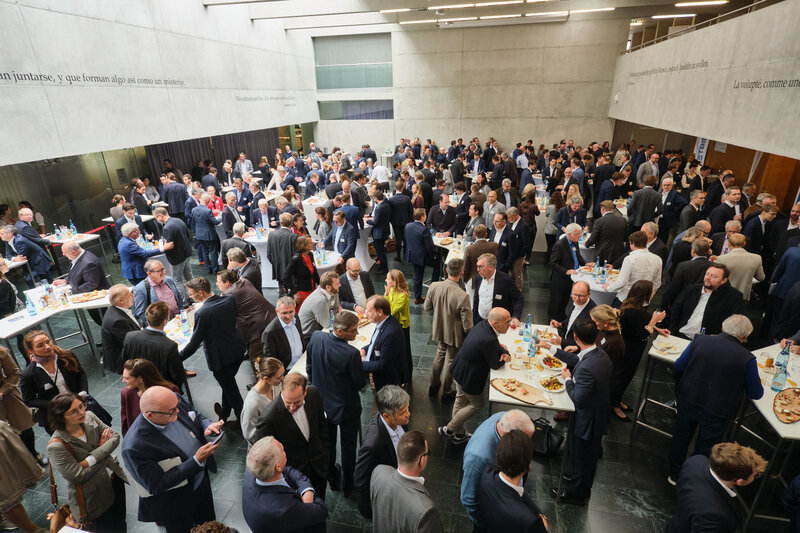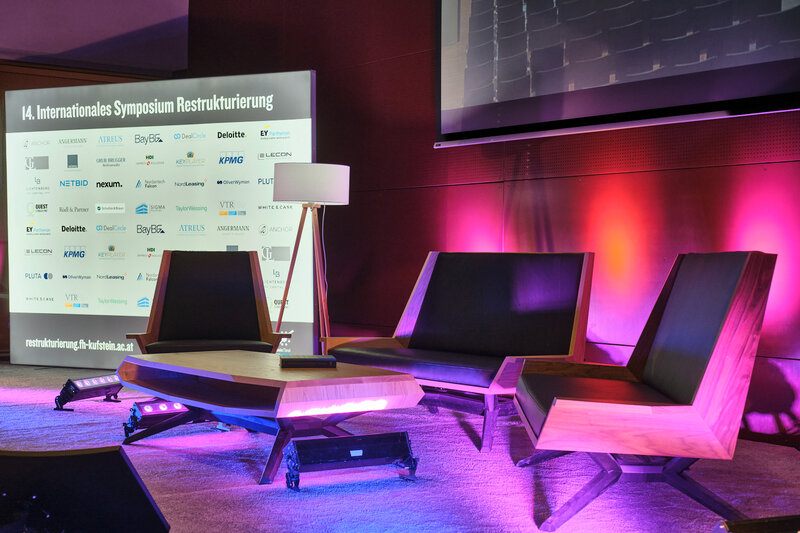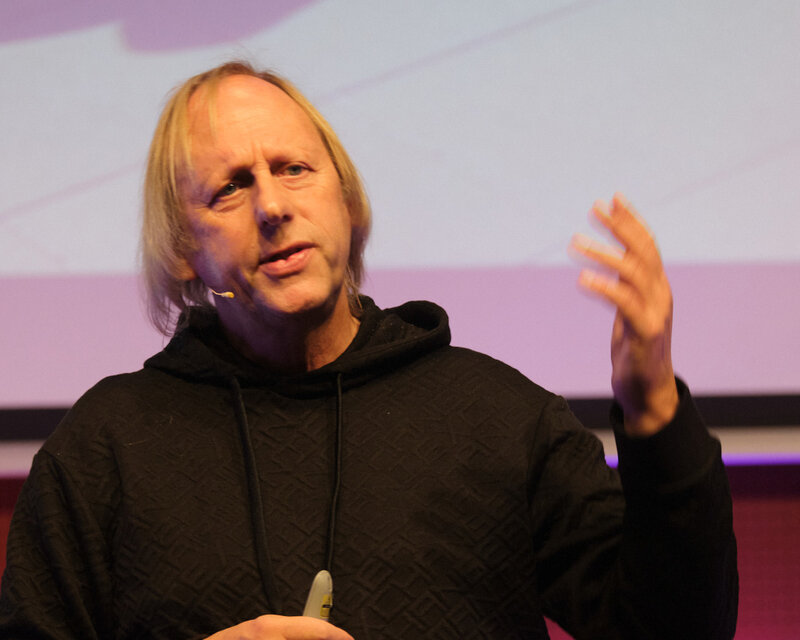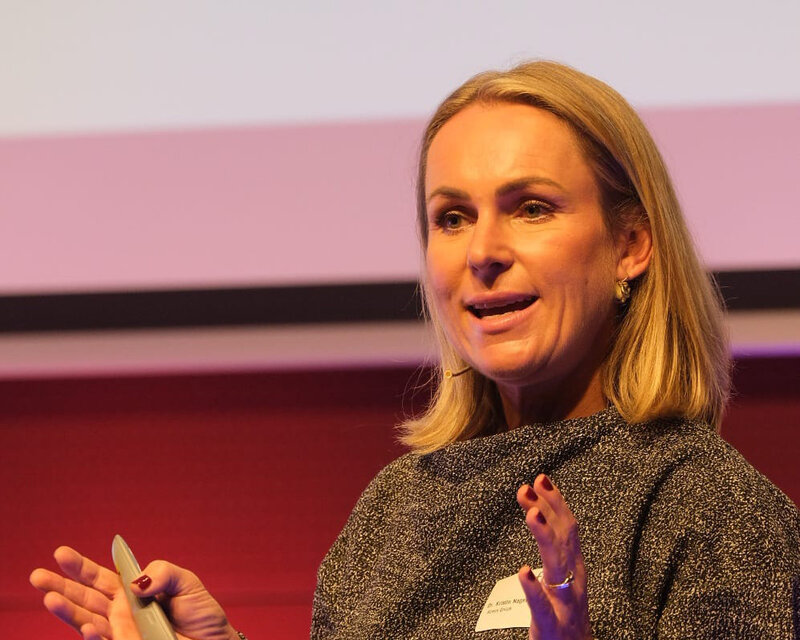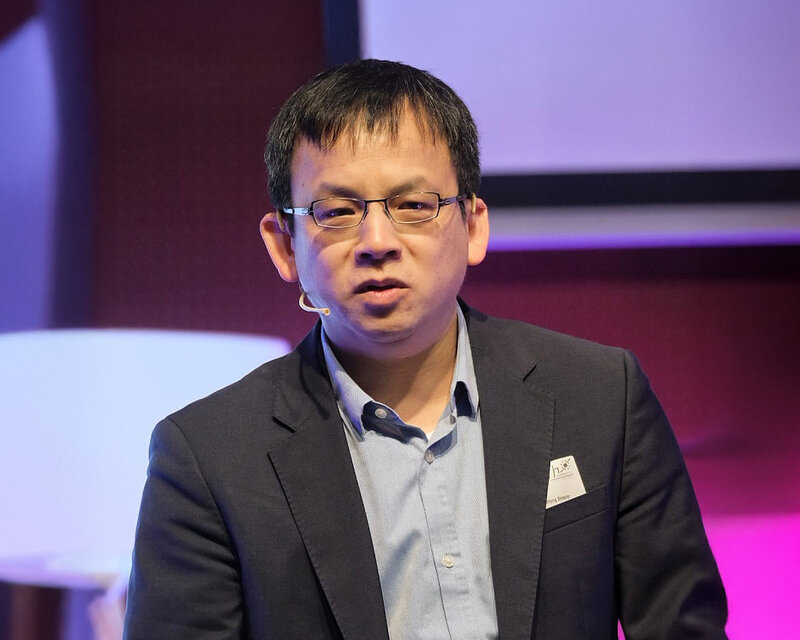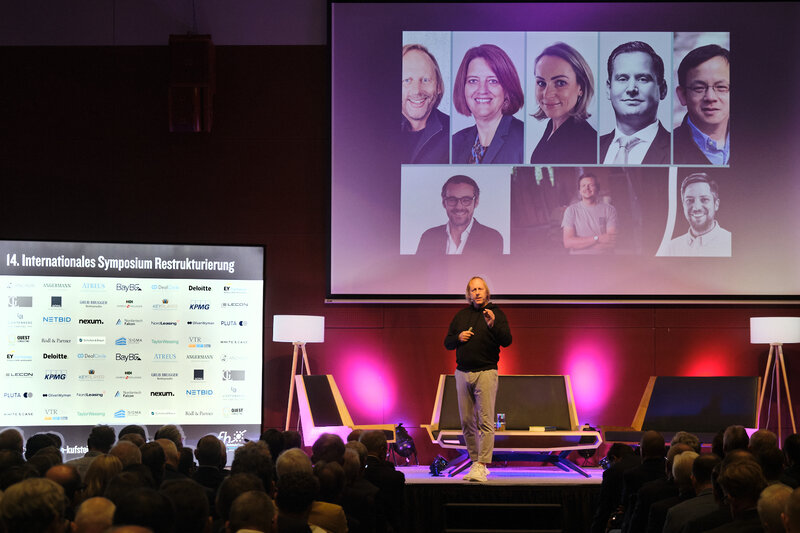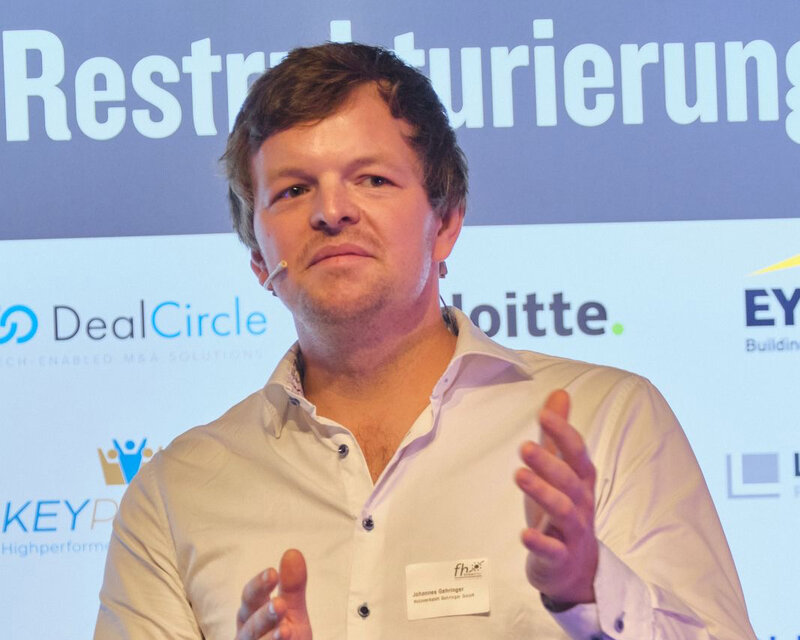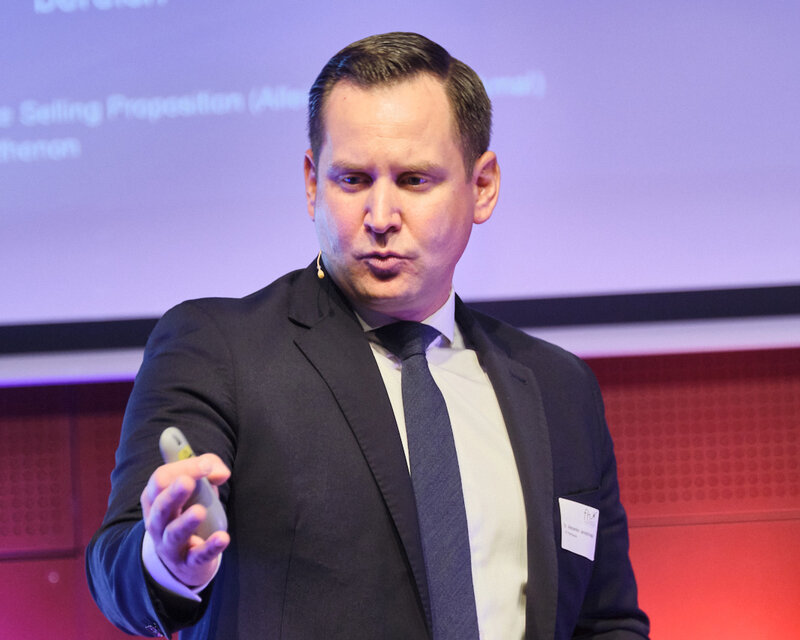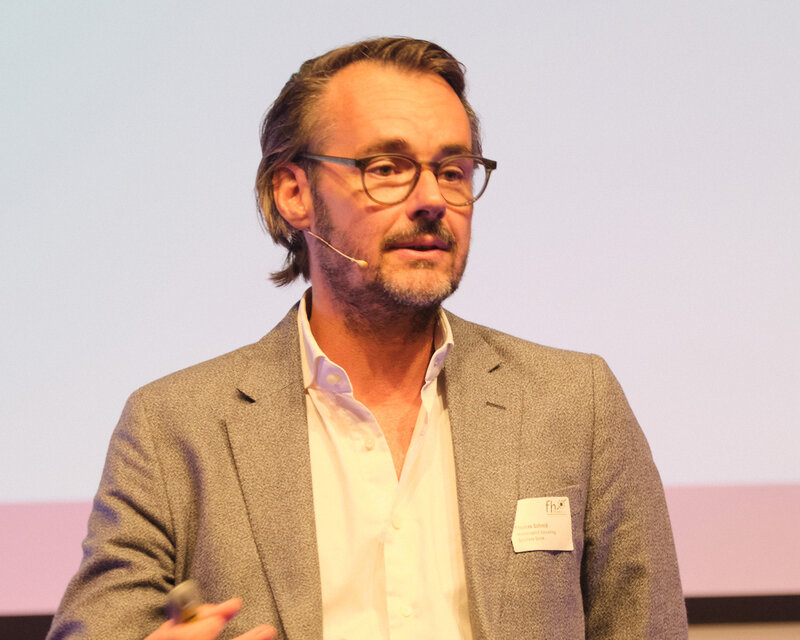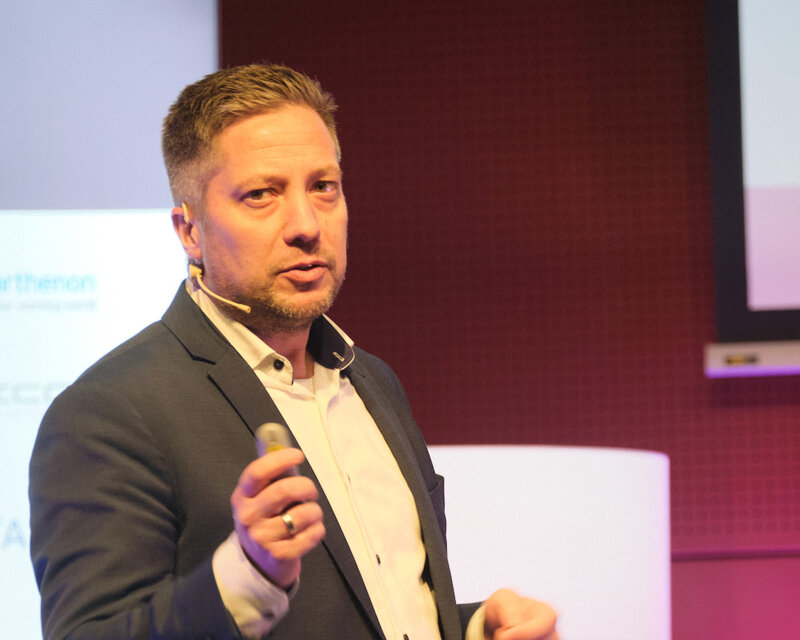14th Restructuring Symposium inspires a full house
- 24.10.2025
- Event Review
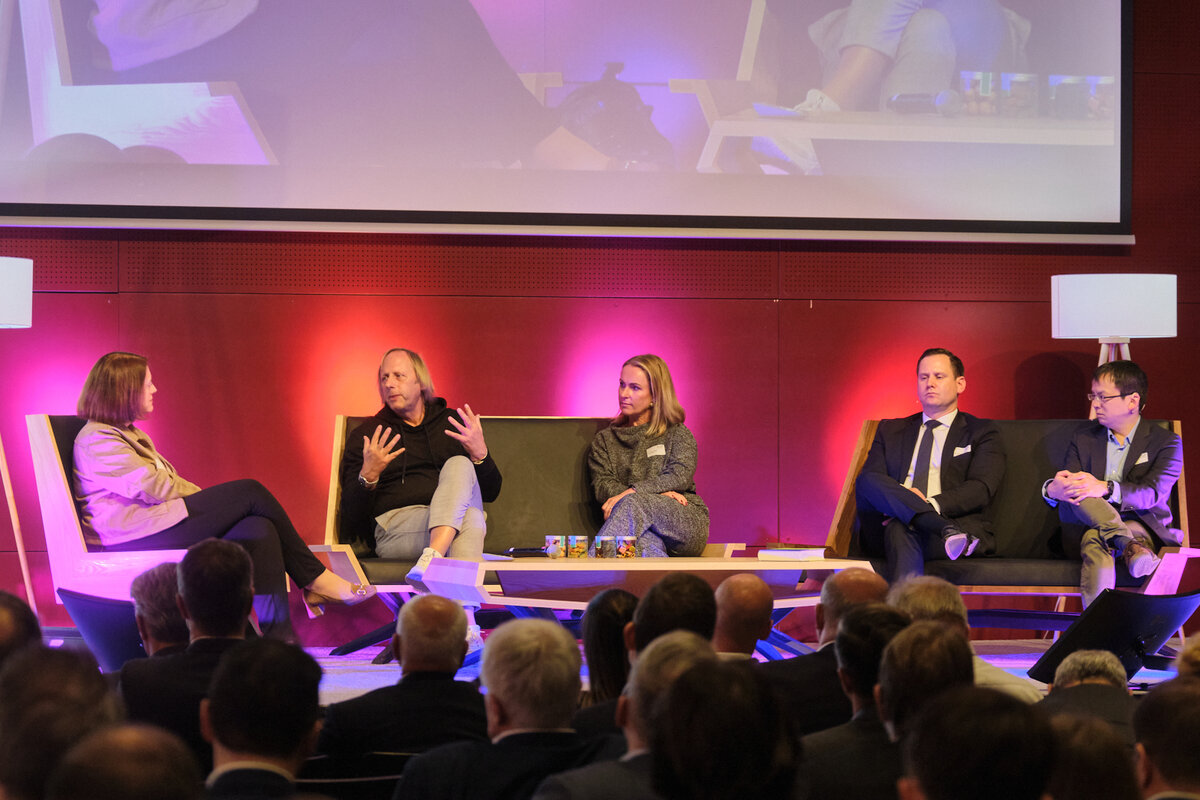
Panel discussion at the 14th International Restructuring Symposium at the University of Applied Sciences Kufstein Tirol with Gabriele Schiemer, host Prof. (FH) Dr. Markus W. Exler, Dr. Kristin Nagel, Dr. Alexander Jaroschinsky, and Felix Lee.
The International Restructuring Symposium at the University of Applied Sciences Kufstein Tirol was once again packed to capacity and featured exciting presentations. On the high-caliber panel, experts discussed transformation, turnaround, and the future viability of companies.
With charm, wit, and a full hall, Prof. (FH) Dr. Markus W. Exler, Head of the Institute for Cross-Border Restructuring, opened the 14th International Restructuring Symposium at the Kufstein University of Applied Sciences. After the initial applause had died down, he welcomed the approximately 400 guests from the worlds of business, politics, and academia. Almost 500 registrations testified to the unbroken interest in what is now the largest specialist conference for transformation and turnaround in the German-speaking world.
Exler recalled that he had launched the symposium in 2012 as a “small, cozy event” – “which went completely wrong,” he added with a wink. Today, the event is considered a central platform for professional exchange, supported by numerous sponsors and partners, whom Exler expressly thanked in his opening speech.
Expert contributions on transformation, crisis, and the future
This year's symposium was held under the motto Where do we stand? and focused on the current economic and social challenges in the context of transformation.
Journalist Felix Lee (Berlin) kicked things off with his keynote speech China on the path to world power, in which he shed light on the economic realignment of the People's Republic. He showed how China is developing from an export-oriented production economy to an innovation-driven consumer and digital economy – with a strategic focus on technological independence and sustainable growth.
Dr. Alexander Jaroschinsky (Stuttgart, EY-Parthenon) then turned his attention to the future of the automotive industry. He analyzed the profound changes brought about by electromobility, international competition, and the shortage of skilled workers.
Dr. Kristin Nagel (Munich) then highlighted the current areas of tension in mechanical engineering – from high energy and production costs to supply chain problems and the shortage of skilled workers. She emphasized the urgency of innovation and digitalization in order to secure the industry's long-term competitiveness.
In the subsequent panel discussion, From crisis to innovation – A restructuring report for the future of our country, Prof. (FH) Dr. Markus W. Exler, Dr. Kristin Nagel, Gabriele Schiemer (Vienna), Dr. Alexander Jaroschinsky, and Felix Lee discussed the measures necessary for sustainable economic renewal. The focus was on topics such as digitalization, artificial intelligence, and autonomous driving – areas of the future that were explored in greater depth under the motto Tech to the People.
Technology, innovation, and new business models
The afternoon focused on digital transformation. Annabell Pehlivan (Vienna) gave a practical demonstration of how companies can successfully navigate change processes through agile business models and the development of future skills. She emphasized that transformation does not begin at the end of a crisis, but must be anchored in the thinking and actions of organizations at an early stage.
Thomas Schmid (Lage) highlighted the potential offered by artificial intelligence in mechanical engineering – for example, through process automation and the monetization of data as a new source of value creation. Johannes Gehringer (Lichtenfels) then presented the transformation of his craft business: with digital realignment and innovative sales concepts, he made the leap from being a dependent contract manufacturer to an independent company operating directly on the market.
The event concluded with a lively gathering in the foyer of the Kufstein University of Applied Sciences – with finger food, technical discussions, and many new contacts. It was a successful end to an event that once again showed how lively the exchange on transformation and restructuring can be.

